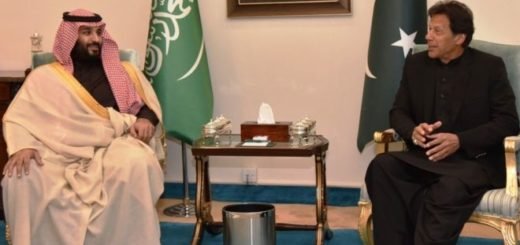Prime Minister Modi’s visit to Rwanda, Uganda and South Africa: A New Establishment for Indian Diplomacy

Indian Prime Minister Narendra Modi with his Rwandan Counterpart Paul Kagame/Image: Twitter @MEAIndia
Africa and India have always maintained a warm history of colonialism and today they share the same path for developments in their respective nations. Geographically, Africa and India’s location had proven to be strategic in terms of trade and the horn of Africa has helped in diminishing the threats of radicalism, piracy and organised crime from reaching India. Geopolitically, the nations have expressed their support towards each other regarding their permanent membership in the United Nations Security Council and India on its part have been actively involved in all the UN peacekeeping missions for some African countries. The countries have shared huge economic prospects in terms of energy resources, agriculture and minerals.
A special gesture by a close friend and a strategic partner! Prime Minister @narenderamodi personally received by Rwandan President @PaulKagame at #Kigali International Airport on the first leg of his three-nation tour. First-ever visit by an Indian PM to Rwanda. pic.twitter.com/sxskyIqx7T
— Raveesh Kumar (@MEAIndia) July 23, 2018
On Monday, Prime Minister Narendra Modi embarked on a five tour to visit three African Nations: Rwanda, Uganda and South Africa. The tour highlights an achievement for the Modi government in establishing a relationship with Rwanda, something very new for Indian diplomacy. The Ministry of External Affairs has issued statements on the Prime Minister’s three-day visits and also mentioned that it would be after 20 years that any Indian Prime Minister would step his feet on Ugandan soil. The tour starts with the Prime Minister’s visit in Rwanda where he is expected to conduct high talks between the delegations and the purpose behind such a comprehensive tour is to undertake new MoUs in the areas of defence, trade, culture, agriculture and dairy co-operations.
Read: Rwandan Genocide: A Dark Spot on our world history
The visit to Rwanda marks a historical moment as India would be making its first diplomatic ties with it and the Prime Minister will be visiting the Rwanda Genocide Memorial and participate in ‘Girinka’ which is a national protection policy, initiated by the President Paul Kagame. Economically, a new turn took place when Rwanda signed a loan with India and China, the two power blocs in Asia. A $300 million loan was signed by the Rwanda President Paul Kagame, Chinese President Xi Jinping and Indian Prime Minister Narendra Modi. India will be contributing a total of $200 million and $100 million will be spent each in areas of irrigation and development of Special Economic Zones (SEZ). China is said to contribute $76 million and $50 million for highway roads connecting the cities of Huye and Kibeho and construction of the new Bugesera airport respectively. The Ministry of External Affairs has also mentioned other developments that would take place after the PM’s visit. A new Bilateral Air Agreement is underway, exemption of visa requirements for diplomatic and service passports and also the establishment of an Entrepreneurship Development Centre in Rwanda to be completely financed by India. The recent development in Rwanda highlights for a further new bilateral relationship between the two countries and Africa has always been the topmost priority of India’s foreign policies.
The Prime Minister will be heading towards Uganda on July 24th and will make his stay there until the 25th of July. He is expected to make a strong keynote speech in the Ugandan Parliament and undertake agreements benefitting both the countries bilateral relations. Uganda has been maintaining close ties with India in terms of pharmaceuticals, automobile components, agro-processing machineries etc, all these exports are further expected to increase after the recent visits. Finally, the tour will end with the PMs presence in the BRICS Summit, scheduled in South Africa from 25th to 27th July where the Prime Minister will be attending meetings with other BRICS nations and he will be visiting the South African President Cyril Ramaphosa. The summit will engage the representatives of the BRICS nation to heavily talk on issues relating to inclusive growth, sustainable development, peacekeeping and vaccines.
Read: Child Rights and Peacekeeping in Africa: The Security Council’s July Resolutions
The major developments have led to the intensification of the bilateral relationship between India and Africa and the result of the Prime Minister’s visit is going to have an effect on the Indian economy as well as its position as an economic power in Asia.
*Arijita Sinha Roy is a Research Intern at The Kootneeti



















